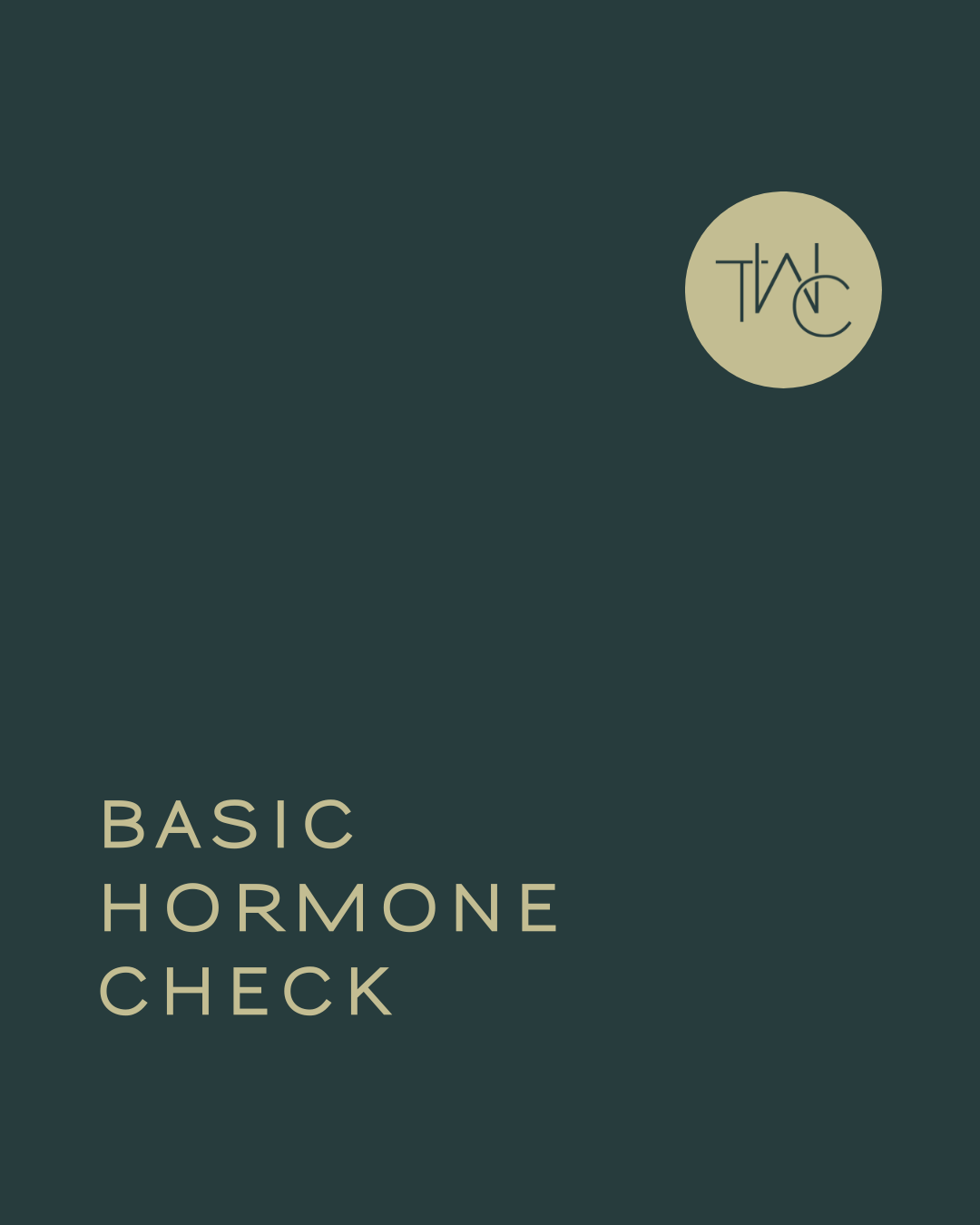 Image 1 of
Image 1 of


Basic Hormone Check
The Basic Hormone Check is the best option for baseline testing of male or female hormonal status. This non-invasive test reports on sex hormones, as well as 4 cortisol levels to evaluate the diurnal cortisol pattern in addition to calculating the Progesterone (Pg)/Estradiol (E2) ratio, which assesses the relationship between estradiol and progesterone.
This test is a consideration in men and women concerned with changing hormone levels as a result of age, cycling women experiencing PMS, peri- and post-menopausal women concerned with their estradiol and progesterone levels for replacement considerations, and anyone with symptoms involving fatigue, insomnia, stress, immunity problems, blood sugar problems, and obesity.
Collection: Saliva
Turnaround time: 1 Week (estimated)
The Basic Hormone Check is the best option for baseline testing of male or female hormonal status. This non-invasive test reports on sex hormones, as well as 4 cortisol levels to evaluate the diurnal cortisol pattern in addition to calculating the Progesterone (Pg)/Estradiol (E2) ratio, which assesses the relationship between estradiol and progesterone.
This test is a consideration in men and women concerned with changing hormone levels as a result of age, cycling women experiencing PMS, peri- and post-menopausal women concerned with their estradiol and progesterone levels for replacement considerations, and anyone with symptoms involving fatigue, insomnia, stress, immunity problems, blood sugar problems, and obesity.
Collection: Saliva
Turnaround time: 1 Week (estimated)
The Basic Hormone Check is the best option for baseline testing of male or female hormonal status. This non-invasive test reports on sex hormones, as well as 4 cortisol levels to evaluate the diurnal cortisol pattern in addition to calculating the Progesterone (Pg)/Estradiol (E2) ratio, which assesses the relationship between estradiol and progesterone.
This test is a consideration in men and women concerned with changing hormone levels as a result of age, cycling women experiencing PMS, peri- and post-menopausal women concerned with their estradiol and progesterone levels for replacement considerations, and anyone with symptoms involving fatigue, insomnia, stress, immunity problems, blood sugar problems, and obesity.
Collection: Saliva
Turnaround time: 1 Week (estimated)
Analytes Tested:
Cortisol Evening
Cortisol Morning (AM30)
Cortisol Night
Cortisol Noon
DHEA
Estradiol
Progesterone
Testosterone
Who is this test useful for?
-
Hot flashes
Night sweats
Breast tenderness
Irritability
Forgetfulness
Irregular menstrual cycles
Vaginal dryness
Urinary incontinence
Uterine fibroids
Increased facial / body hair
Acne
-
Decreased libido
Erectile dysfunction
Loss of stamina
Decrease in mental sharpness
Reduced muscle size
Increased moodiness
Metabolic syndrome
Prostate enlargement or cancer
Hot flashes
Irritability
-
Weight gain
High blood sugar
Elevated lipids (cholesterol and/or triglycerides)
Insomnia
Fatigue
Fibromyalgia
Decreased stamina
Anxiety/Depression
Chronic disease
Why is it important to test your hormones?
Hormones are powerful molecules essential for maintaining physical and mental health. We frequently think of estrogen as being a female hormone, and testosterone as being a male hormone.
But men AND women make both, plus several more that need to be in balance for optimum health. An imbalance of any one hormone can throw your physical and mental health out of balance, causing aggravating and even serious health problems.
One size does not fit all when it comes to hormones. For decades western medicine has prescribed hormone replacement therapy as if everyone needed the same thing and the same amount. Nothing could be further from the truth.
Your hormones are like your fingerprints and in order to achieve optimal health, you need to know what your specific imbalances are. Female and male hormone tests can help identify these imbalances.
There are several ways to test for hormones (saliva, serum and urine). Saliva is the best method to test the active/bioavailable portion of hormones, which are reflective of tissue levels.
If you are seeking bio-identical hormone replacement (BHRT), you'll need to know active hormone levels.
In addition, if using a topical (transdermal) hormone preparation for treatment, saliva testing is the most accurate tool to measure and monitor hormone status.
